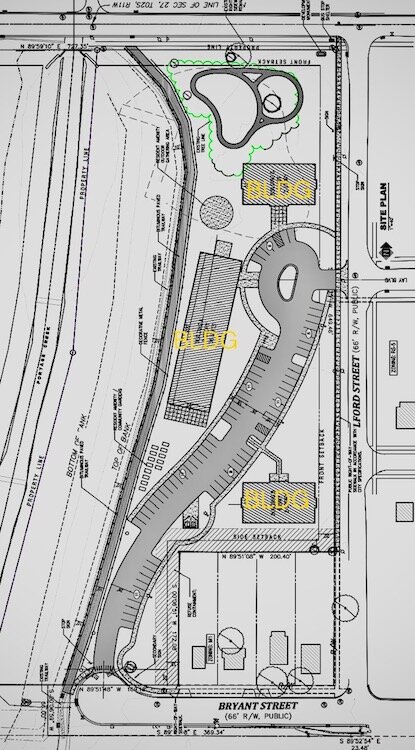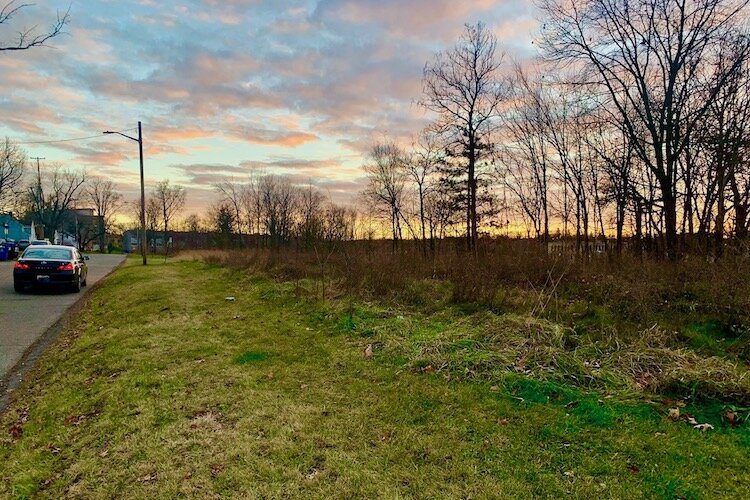Supportive housing is planned for those struggling to overcome addictions in Kalamazoo
Kal Recovery, a supportive recovery housing development that involves the construction of 48 apartments is getting closer to becoming a reality. The project will include three buildings on a little less than seven acres of a 12-acre site between Alcott and Reed streets.
This story is part of Southwest Michigan Second Wave’s series on solutions to affordable housing and housing the unhoused. It is made possible by a coalition of funders including Kalamazoo County, the ENNA Foundation, and the Kalamazoo County Land Bank.
KALAMAZOO, MI – It’s not uncommon for people struggling with addictions to end up in jail or prison.
When they are released, it’s not uncommon for them to end up back in an unstable environment that is not much different from where they started – even after they have detoxed and are in the process of recovery.
So a local developer is working with others to give them a better, long-range living environment that allows them to continue their recovery and to thrive.
“We’ve always worked with other affordable housing developers around the state who do permanent supportive housing as well as affordable housing for families and seniors and workforce housing for people who are moderate income,” says Matthew Hollander, president and chief executive officer of Hollander Development Corp. “So for us, this was not an illogical next step for us to take.”
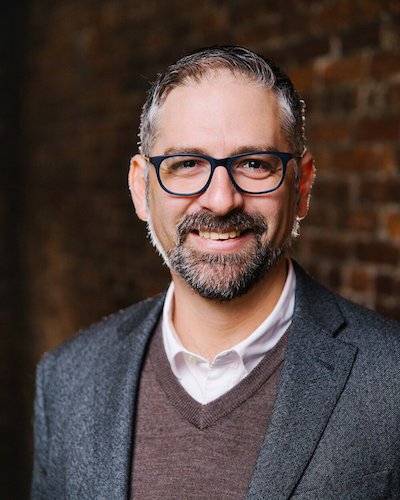
Hollander helped form and is working as part of Edison Community Partners LLC to build Kal Recovery, a supportive recovery housing development that involves the construction of 48 apartments.
The project, which has been redesigned three times since it was conceived in 2018, will use several acres of a former Brownfield Redevelopment site adjacent to 333 E. Alcott St. in the Edison Neighborhood. The project will include three buildings on a little less than 7 acres of a 12-acre site between Alcott and Reed streets. It is expected to have frontage on Belford Street to the east and Reed Street to the north.
Hollander says the project comes at a time when there are growing needs.
“We’re trying to build as much affordable workforce and senior housing as we can in the shortest amount of time possible in response to the broadscale affordable housing crisis that we’re facing in Michigan and the United States,” says Hollander, referring to the statewide need for 175,000 more housing units in Michigan, according to the Michigan State Housing Development Authority.
At the same time, he says, “Everybody in the United States, I think, has some direct connection to the opioid epidemic. We all know people who have struggled with substance use disorders and too many of us know people who have died from them. And that’s true for our team.”
The majority of the apartments in the new development will be one-bedroom units, including those located in a central, three-story building, which will be considered the main building. The other buildings will have one-bedroom units as well as six two-bedroom units.
Among the apartments, 46 will be supported housing for individuals and families whose head of household is in recovery from the use of methamphetamines and opioid use disorders. The other two apartments are to be used to house a resident manager and a life coach. The main building will also have space for offices to accommodate local recovery services, workforce development training, financial literacy training, and other advocacy services.
“I think it’s awesome,” Stephen Dupuie, executive director of the Edison Neighborhood Association, says of the project and plans to have those “wrap-around” services to help residents in their recovery process.
He says neighborhood residents warmed up to the idea of having the recovery project there after the planners rescaled the project and decided to model it after a successful recovery center in Jackson called Andy’s Place. That supportive recovery housing development has 39 one-bedroom apartments for individuals and 11 two-bedroom units for families. Occupants must be referred there by the courts and be subjects of the Michigan Drug Court System. Rent is based on a resident’s income.

Hollander says planning for Kal Recovery began in 2018 but faced several roadblocks. The property was rezoned from industrial to multi-family residential about two years ago. And an application for Low-Income Housing Credits was submitted early this month.
“We’re feeling pretty good about it,” Hollander says. But he does not expect MSHDA (Michigan State Housing Development Authority) to act on the application until the spring of 2024. If all goes well, construction could begin late next year, with the development opening in late 2025 or early 2026.
Edison residents were introduced to the Kal Recovery project concept about five years ago. And initially there was a fair amount of NIMBY (Not In My Back Yard) sentiment, Dupuie says.
The link to the Jackson project helped people visualize the concept and get a better feel for what the project entails, he says. That was done in conversations the planners had with members of the community. It included testimonials of people participating in the Andy’s Place program and offers by the developers about a year ago to transport Edison residents to Jackson to tour Andy’s Place
“First of all, that’s really successful,” Dupuie says of the 2-year-old Andy’s Place. “… And so they (Hollander and partners) have learned a lot of really great best practices. Sort of like, ‘Oh, this really worked well. Here are some of the things that we had speed bumps with.’ And so I think the project in general is a really good idea.”
Hollander says a catalyst for the Kal Recovery project was a call his firm received in July of 2018 from the Michigan Association of Treatment Court Professionals, an organization comprised of professionals who work in the state drug treatment court system. The conference call included representatives of Cinnaire, a mission-driven nonprofit organization of more than 130 individuals that invests in people and projects to try to transform communities for the better. The 30-year-old organization provides capital and equity to burgeoning community development projects. Based in Lansing, it has projects in Wisconsin, Minnesota, Indiana, Illinois, Pennsylvania, New Jersey, Delaware, and Maryland, as well as Michigan.
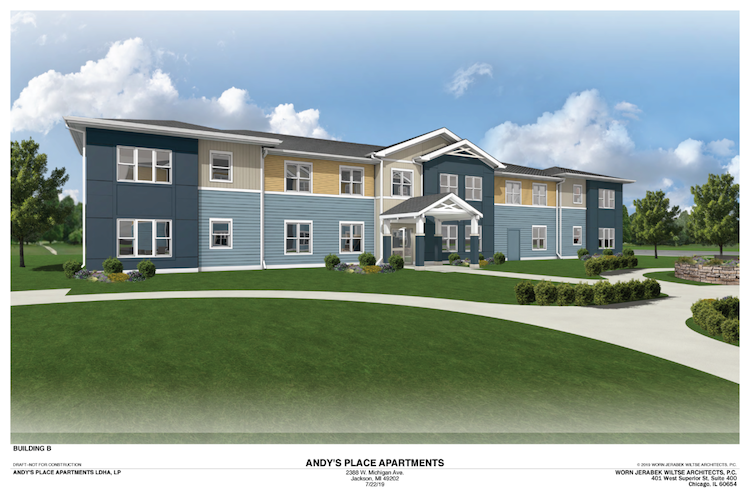
The property that will be used by Kal Recovery will be adjacent to the planned Literacy Trail, a project of the Kalamazoo Literacy Council. The council is working with the City of Kalamazoo and others to pave what is now a south-to-north foot trail that some area residents use to get to and from human service providers in the 300 block of East Alcott Street, such as Kalamazoo County Health and Community Services, the State of Michigan Department of Health and Goodwill Industries. The trail runs along part of the Portage Creek.
Michael Evans, executive director of the Kalamazoo Literacy Council, has announced efforts to have the footpath widened and paved so it can be used by families, people in wheelchairs, cyclists, and pedestrians, and to have it connect to a play place he and others want to create for youngsters and families at a dead end portion of Brant Street. Along its route, the trail is expected to encourage literacy with free library boxes and information about notable Kalamazooans such as Albert White, a successful African-American architect from Kalamazoo.
Dupuie says, “That part of the trail will get paved and Hollander, if they can and if they want to, can continue the path along their (Kal Recovery) development. …. They’re also looking at part of their parcel that could be developed for community use, whether that be a small dog park or who knows what. But they’ll be looking for community input in terms of what that space is for. It’s space on Reed Street, but it will be open to the community.”
Matthew Hollander says Kal Recovery is being developed by Edison Community Partners LLC, a new company that was recently formed, and which is primarily minority owned “and has more of a racial-equity focus than Hollander Development. But it’s composed of people who are also involved with Hollander Development.”
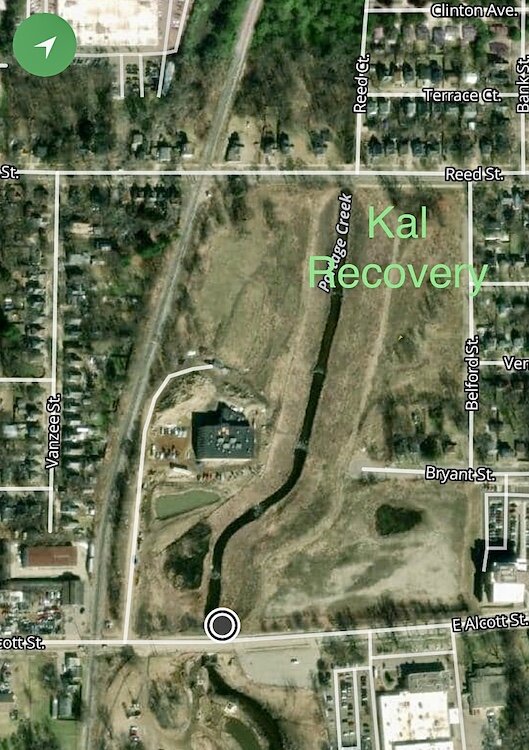
He says his company has been developing affordable housing for 44 years and has done some market-rate housing but only in the context of mixed-income housing that includes affordable housing.
“That’s how our company started and we develop projects all over the state,” Hollander says. “So our reputation in Kalamazoo is largely based on The Creamery (the $14.7 million, 48-unit residential-commercial development that opened in March of 2021 at 1101 Portage St.). But we’ve developed several thousand units of affordable housing around the state of Michigan since 1979.
Hollander Development has worked with Cinnaire on other projects and with Kal Recovery saw a means to be a part of a project that would provide affordable housing to a growing number of people in need, as well as helping some who need targeted support services.
Dupuie supported the idea, saying, “A lot of times when someone is dealing with addiction and gets out of prison, nobody’s going to take them in. With family members, they’ve sort of burned a lot of bridges. And so this is just a way for somebody coming out of the system to have the support they need to get through their recovery process.”
